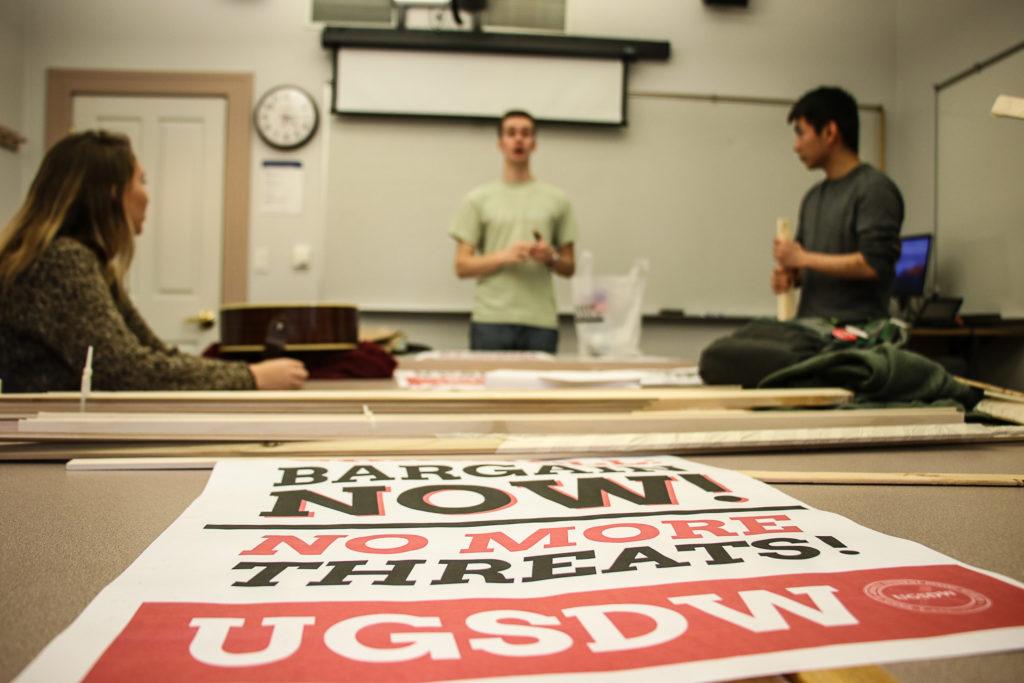By Eva Hill
hilleva@grinnell.edu
The Union of Grinnell Student Dining Workers (USGDW) is in negotiations with the college to lay out a renewed union contract for College dining workers, as the current contract expires at the end of this academic year. It is unclear, as of now, how long the new contract will last, as the Union has negotiated two previous contracts with the college: the current two-year contract and a one-year contract before that. Jacob Schneyer ‘21, USGDW Executive Board Member, said that the contract length is one of the things that the union is negotiating with the College.
The union also wants to create stricter anti-harassment policies within the dining hall, specifically related to making the Dining Services workplace a safer space for transgender and non-binary students. Although the exact policy has yet to be decided, Schneyer said that one possible addition could be bias training for full-time Dining Services staff on subjects such as using students’ correct pronouns. Additionally, the union would like to make the bonus pay system function more accessibly for student workers, as well as providing unpaid sick leave.
A few recent changes have also been made to the union’s administrative structure. From now on, Cabinet members will serve for calendar years rather than academic years. “The intention of that is to make our transition process smoother — if someone is leaving office and someone new is taking over, the old student will still be on campus,” said Schneyer, adding that the new term alignments also avoid the difficulty of training new Cabinet members over the summer break.

Photo by Mahira Faran
This past Monday, the Center for Careers, Life and Service (CLS) held a brainstorming session about goals for student work on campus. The hour-long event, held in JRC 101, was led by CLS Department Head Mark Peltz, who discussed the importance of “high-impact” activities for students, which he defines as “those experiences in students’ lives that have the most significant impact on them as individuals”. During the session, students responded to two different prompts: “Reflect on a role you’ve held on campus, and describe how that experience has contributed to your learning and development”, and “Presume we have unlimited support and resources. How might this experience be different if your learning and development became a more central feature of this position?”
Several students who work in Dining Services and in other jobs on campus attended the meeting and raised a number of concerns that they have with the current state of employment at the College. One topic that was raised was the difference in wages between Dining Services and almost every other job on campus: the starting Dining Services wage is $9.76 per hour, a significant increase from the $9 per hour wage that is standard for most other jobs, and from the $8.50 training-period wage that certain positions use. As a result of this disparity, student who rely on campus jobs to pay their living expenses may end up working for Dining Services even if another job on campus would be more personally rewarding.
Students also expressed a desire for greater visibility and accessibility of employment opportunities on campus, as well as greater availability of jobs that provide training in transferable skills and in which workers are provided with constructive feedback.






















































